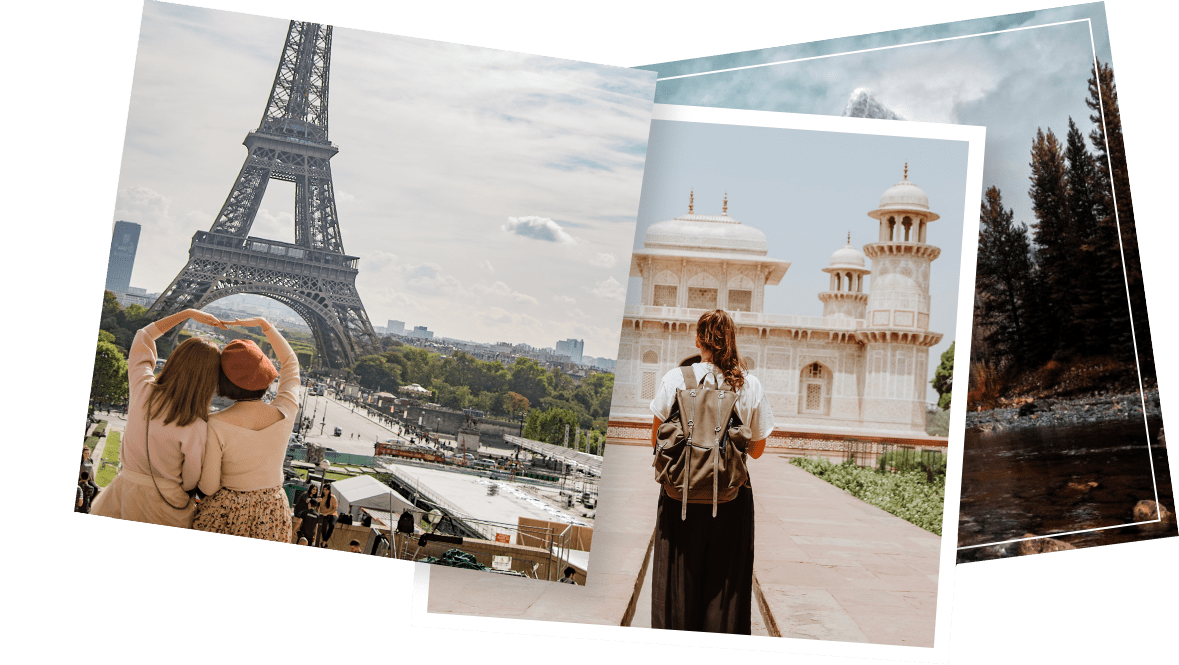

Traveling is exciting and enjoyable for many reasons; one of the highlights of any trip is trying different local cuisines. However, not all food might sit well with your stomach. Thus, it is of great importance that you know which foods to avoid when traveling. Certain food safety tips are always helpful in avoiding some very simple food mistakes while traveling. These can lead to illnesses of various degrees, from mild nausea to fatal food poisoning.
So with this understanding, let’s look into tips on foods to avoid when traveling. Further, let’s also look at some of the best food practices, some of which are doctor recommended as well.
Click trough the below slides to quickly find out how to avoid the top food follies while traveling:
Contents
Foods to Avoid When Traveling
These are only some of the items that you should avoid while traveling. But with this list, you should get sufficient intuition into the food consciousness required while traveling. You can customize this list according to your vacation destination and dietary needs.
1. Tap Water
For this tip, I will give you a personal example from my travels to Europe some years back. I visited many places and had no trouble surviving on tap water. But these were from very good hotels and homestays. However, when I entered Venice, my hotel receptionist gave me a warning as soon as I checked in. She cautioned me that I should never drink tap water anywhere in this city. Even though the city is famous for its beautiful Gondola rides, tap water was not potable for drinking at that point in time.
This rule of thumb holds true in many countries, especially developing countries in Africa or Southeast Asia. If you can purchase packaged drinking water, then that is the safest thing to consume. However, if you don’t want to do that, then always carry your own boiled water in a bottle.
You may even consult a health professional and ask them about easy DIY water treatment routines while traveling to a particular country. Drinking unsafe water is a simple and very common mistake that any traveler can make, but it can have deadly consequences.
2. Ice
As you have been forewarned about tap water, you also need to avoid the frozen form of it. After all, it is made from the same water. You can limit your ice intake or use the same boiled water to make your own ice. It is the simplest thing you can do. You will get a refrigerator in most accommodations, whether a hotel or a vacation home. Carry an ice tray or an icebox on your travels, and you are all set.


If you are going to a fancy restaurant, always confirm which water they use to make their ice or from where they source it. If it is packaged ice, then you can have it, but avoid iced drinks from street vendors.
Another reason to avoid ice is that you might catch a cold or a sore throat. It can be a great pain while traveling because you might need an antibiotic medication. This can put your travel plan off the schedule, which can be a huge bummer.
3. Raw Meat & Seafood
Although meat and seafood are local delicacies in many tourist destinations, raw or uncooked ones top the list of food to avoid when traveling. Uncooked or undercooked meat and seafood are proven causes of many diseases such as H1N1 swine flu, among others. It is recommended not to order such items if they are not cooked well. In the case of seafood, the problems related to contaminated water might also render it unsafe to consume.
Therefore, it is better to ensure that the meat and seafood are well cooked. Further, if you can, avoid eating from places not frequented by tourists and locals. These places might not have fresh meat or seafood.
If you are eating street food, ensure that you are aware of what meat you are eating. At times, you might find a local dish that is too strong, too spicy, or generally disagreeable with your palate. Further, you might not be aware of what you are allergic to. So play a little safe when you are in uncharted food ‘waters’.
4. Apples, Farm Produce & Berries
Berries are skinless food. This leads to greater chances of contamination. Even if you wash them, you never know if you have got them completely germ-free. At times, some germs might seep into them. So it is safer to avoid them, at least while you are traveling. If something throws off your digestive system, you might have to rush to the doctor or cut your trip short. No one would want that.


Apples and farm produce are not as bad as berries. They do have skin, but even so, they are fresh produce. Therefore, they might be a product of contaminated water. So it would be best if you only had these when you could wash them well in contamination-free water. This applies to salads too, because vegetables are also farm produce.
5. Sauces, Spices, Condiments & Seasonings
If you have tried the Asian restaurants in your hometown, you will already know that some countries have incredibly spicy cuisine. Your local restaurants may have even adapted the food to the spice tolerance of your country. However, if you go to the actual nations of its origin, you might get to taste the authentic preparations. While that is exciting, you never know which spice might irk your system.
Therefore, it is best that you avoid very spicy authentic foods. You might try smaller samples to see if you are okay with the spice levels. However, if you have had any prior bad experience, please don’t challenge yourself with food.
6. Unpasteurized Dairy
In many countries, fresh dairy products are a part of the authentic spreads. So if you are trying a local buffet, avoid such products. Unpasteurized dairy products might not meet the food standards of your own country. These vary from country to country. It’s best to buy good quality dairy products from a reputable grocery store or eat at your hotel or renowned restaurants.
7. Street Food


With street food, you need to be extra careful. It might be delicious and authentic, but you need to ensure that the stall is clean. You also need to ensure the hygiene of the vendors’ techniques in preparing the food. A good indicator of a safe street vendor is the number of people eating at the stall: the higher the number, the fresher and safer the food. Meat should always be kept in covered containers and cooked well.
A Few Words of Caution & Sanitary Tips
- Travel Insurance: When you are traveling, we recommend that you invest in travel insurance. Although it might cost you a little extra, if you get some food illness you will be able to get it treated at little or no out-of-pocket costs.
- Prefer Cooked Meals: Eating anything raw can be troublesome. Always go for cooked meals. You can cook them yourself or eat at a commonly frequented restaurant.
- Carry Some Snacks: Carry some known brands of snacks for munching or meals. You can carry a few ready-to-eat meals too. However, avoid overconsumption of these because of preservatives.
- Play Safe: Try only the most popular local delicacies and avoid being over adventurous. Always ensure what you are eating.
- Consult A Medical Professional: If you are planning to visit a very exotic destination, always consult a doctor for vaccinations. Even your travel agency might recommend some. Also, you can ask them for a few tips on food to avoid while traveling. They see such cases every day, and they can give you a few rules of thumb from their experience.
Wrapping Up the Safety Guide on Food to Avoid When Traveling
I hope these tips on food to avoid when traveling help you in having a safe trip. You don’t need to be over-cautious and avoid everything. You can eat a buffet or a salad but ensure that you eat at a popularly frequented place and where hygiene is maintained correctly.
Avoid extremely adventurous cuisines. For example, if you go to India, try the simpler dishes with lower spice level and condiments. If that goes well with you, you may up your game and try more exotic dishes. You can enjoy the local cuisine and still be safe at the same time.
If you are planning international travel, pick a suitable accommodation. Most good hotels offer international foods, so you don’t have to go on a food hunt for every meal. If you prefer a vacation home, then go for the one close to the local market. There you can find good and safe ingredients.
Please find out the most reliable accommodations on our platform Rental Trader. These will reduce your food issues to the minimum. For more information about Rental Trader, see our Contact page to fill out the web form and we’ll get back to you as soon as possible.






Awesome tips on food travelling.